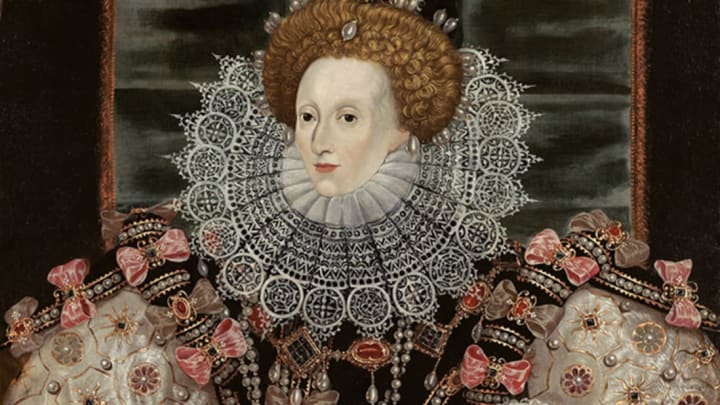It's often assumed that women are more peaceful than men. Last year, the Dalai Lama declared that a world run by women would be more peaceful, because ladies “have more sensitivity about others’ pain.” In a 2014 survey by the Pew Research Center, a third of respondents considered female leaders better at working out compromises. But if history is any indication, having a woman in charge doesn’t necessarily mean the end of war.
A working paper by two New York University scholars [PDF] examines the association between conflict and the gender of political leaders between the 15th and 20th centuries. According to their analysis, presented at the annual meeting of the American Political Science Association, European queens were actually more willing to go to war than kings. They looked at 184 rulers in 17 countries, one-fifth of whom were ruling queens, and found that queens were 27 percent more likely to be at the helm of a state during conflict with another country than kings.
That doesn’t necessarily prove anything about women’s preference for violence over peace. The researchers present two hypotheses as to why European queens would have been more hawkish than their male counterparts. It could be that a country led by a woman was seen as an easy target for other states, so queens had to go out of their way to prove they were willing to go to war, lest they be overrun with enemy armies. Alternately, queens may have had more time and resources to devote to waging war if they passed some of their duties in running the country on to their male spouses—as a man in the same position at that time would be unlikely to do.
The historical data does suggest that lone queens had targets on their backs. “Among married monarchs, queens were more likely to participate as attackers than kings. Among unmarried monarchs, queens were more likely to be attacked than kings,” the researchers write.
[h/t: The Science of Us]
